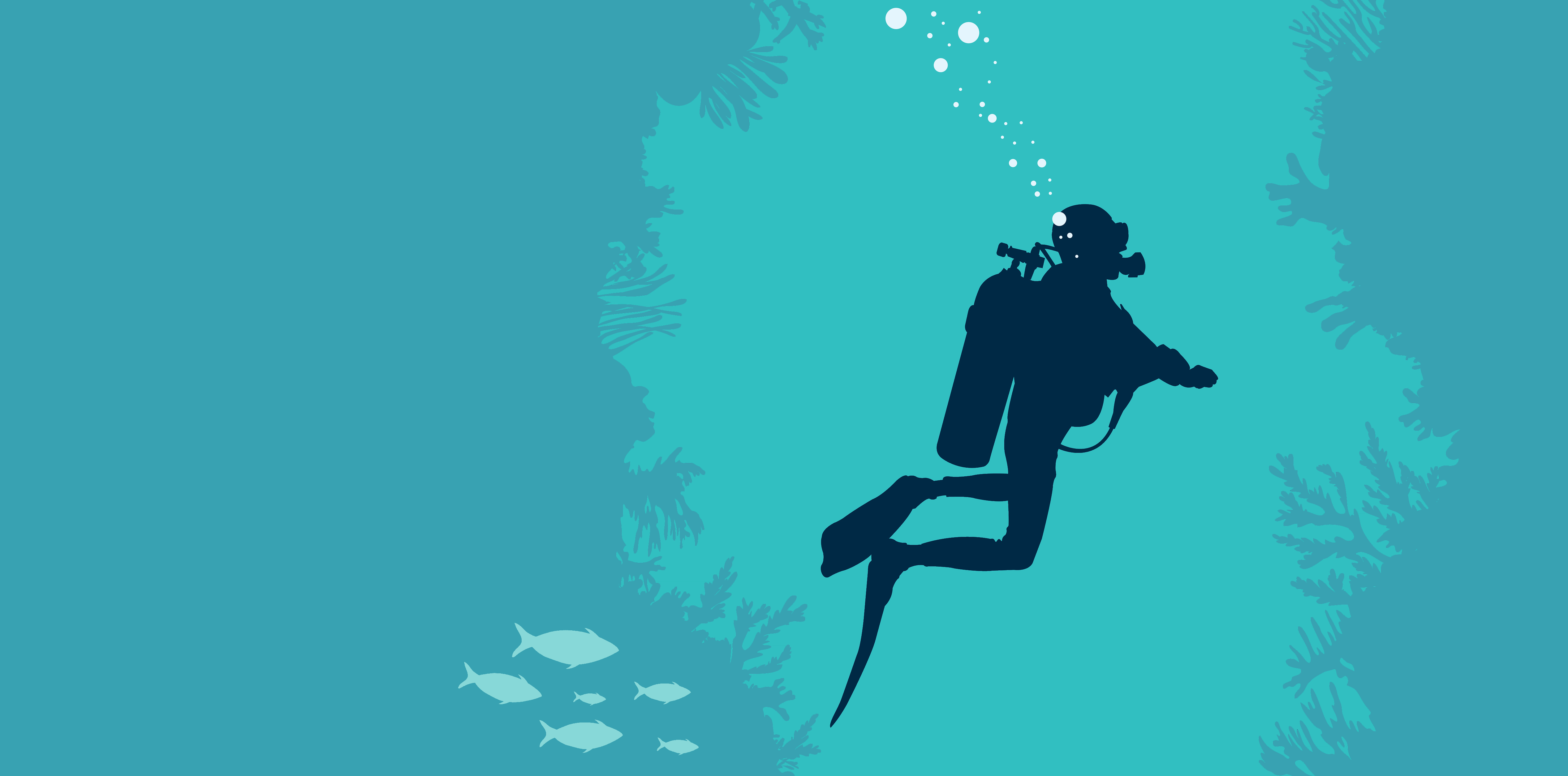The ocean covers over 70% of the planet, yet it remains one of the most overlooked and underinvested areas in global sustainability efforts and conservation. The United Nations Ocean Conference (UNOC) in 2022 reinforced these concerns by highlighting that "despite the multidimensional threats facing the ocean, the UN sustainable development goal (SDG) 14, "conserve and sustainably use the oceans, seas and marine resources for sustainable development", continues to be the most underfunded SDG.1 This lack of prioritisation highlights a fundamental need to change our relationship with the world’s seas and oceans. Young people have a crucial role in shaping the future of ocean conservation through their values, behaviours and actions.
This executive summary is written by Economist Impact for Back to Blue, an initiative of Economist Impact and The Nippon Foundation. It draws insights from an extensive literature review, expert interviews and a global survey of 3,500 respondents aged 18-24 in 35 countries. The study offers a snapshot of the relationship between young people and the ocean, as well as outlines young people's perspectives on ocean health, including their own values and perceptions of responsibility when it comes to ocean stewardship.
What is ocean literacy?
Ocean literacy is an understanding of the ocean’s influence on oneself and one’s influence on the ocean.
Originally, approaches to ocean literacy assumed that increased knowledge directly leads to behaviour change.
More recently, ocean experts and marine scientists have suggested including areas such as emotional connectedness in the definition. This is in recognition of the fact that "the drivers of human behaviour are more complex than just knowledge and facts” says Emma McKinley, senior research fellow, Cardiff University and the Marine Social Science Network. Expanding the definition involves including access and experience of the ocean, people’s ability to adapt towards more sustainable use of marine resources, as well as trust and transparency in decision-making processes related to ocean management and conservation.
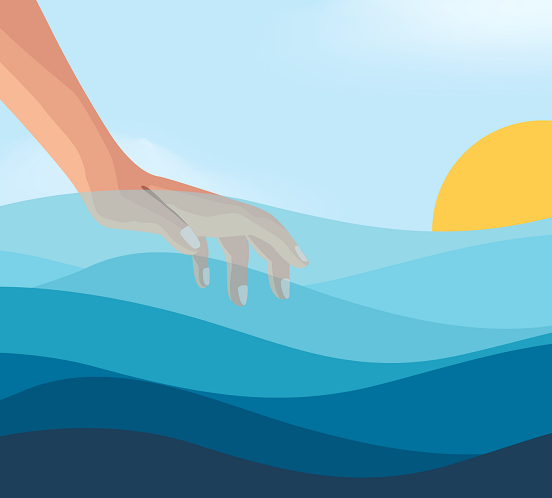
“The challenge is not how we manage the ocean but how we manage ourselves.”
- Nicola Bridge, head of ocean advocacy and engagement, The Ocean Conservation Trust
THE FIRST DISCONNECT: OUT OF SIGHT, OUT OF MIND
75% of young people are concerned about the current state of the ocean, with a higher level of concern among those in emerging economies.
I am concerned about the current state of the ocean (% who agree)
Concern about the state of the ocean is higher in emerging economies than advanced economies. This could reflect greater impacts from climate-change events—such as rising sea levels, ocean acidification and more frequent extreme weather patterns—that these countries are likely to face.
In addition, over 40% of respondents from emerging countries consider the ocean as highly valuable for jobs and livelihoods.
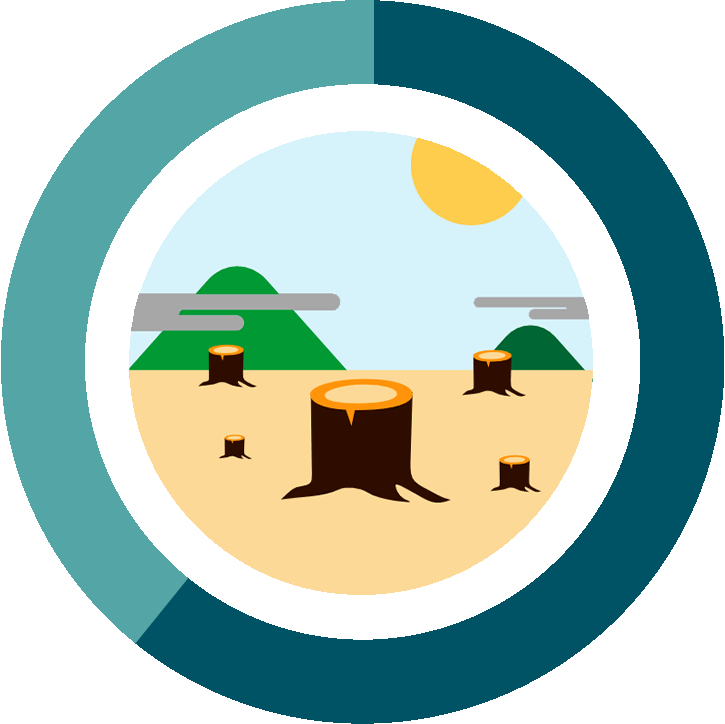
Yet 61% believe that deforestation, air pollution and freshwater scarcity require more attention than ocean conservation.
“People don’t understand the different connections ... We live in silos—each one of us comes from a discipline, from a sector, and it’s difficult for people to make the effort to create the connections.”
- Francesca Santoro, senior programme officer, Intergovernmental Oceanographic Commission (IOC)

THE SECOND DISCONNECT: KNOWLEDGE VERSUS BEHAVIOUR
Many young people have some knowledge about the importance of the ocean in the Earth's systems.
61%
think the ocean is important to clean air and water

53%
think the ocean plays an important role in regulating weather and climate change

50%
think the ocean has important impacts on human health and well-being

The majority also tend to express positive emotions towards the ocean.
How does the ocean make you feel?
Positive emotions 91%


Negative emotions 9%


Despite young people's knowledge about the ocean and high interest in engaging with it, actions / behaviours fall short.

Although interest levels are similar across genders, young men demonstrate higher engagement rate than young women when it comes to:
Spending time near the ocean
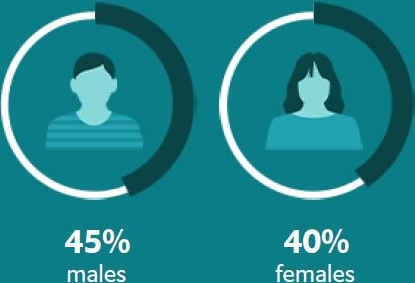
Participating in arts and culture related to the ocean
Enrolling in educational courses or experiences
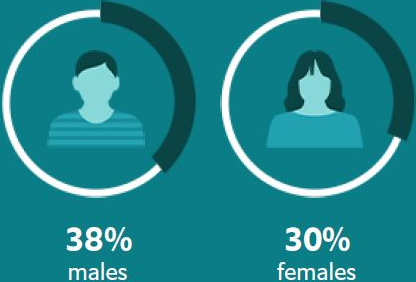
This gap in engagement could largely be driven by structural barriers. Such barriers include unequal access to opportunities, resources, financing, market information, technology, training, mobility and bargaining power. These limitations prevent women from fully participating in leadership and decision-making processes and even ocean-related activities.
Our survey responses suggest that actions falling short could be a result of barriers in connecting with the ocean.

Lack of time

Lack of transit access

Lack of opportunity
THE THIRD DISCONNECT: EDUCATION AND THE OCEAN
Around half of young people rely on print media, social media and film for ocean information, while only around three in ten turn to educational courses.
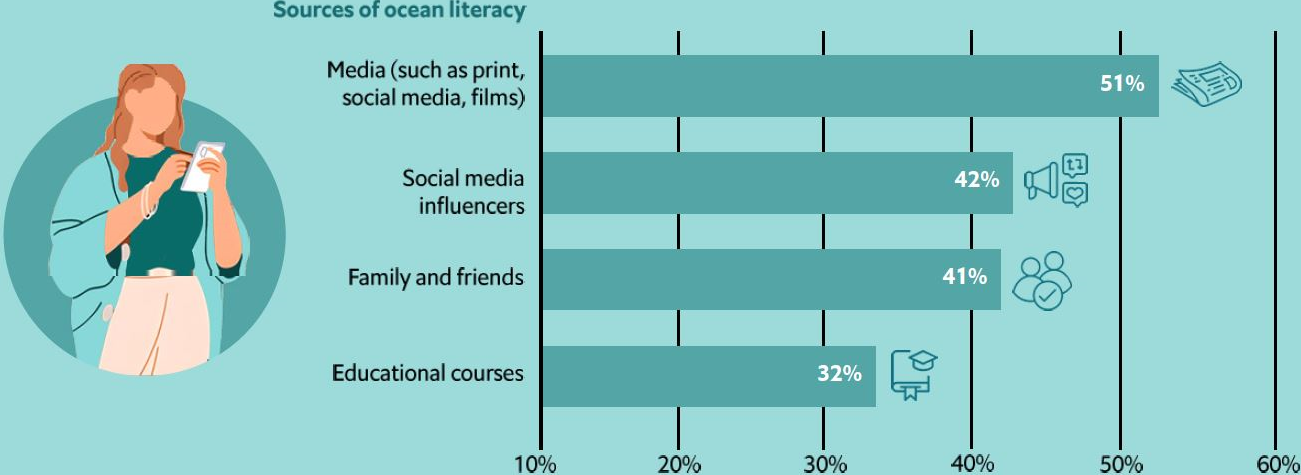

Sources of ocean literacy
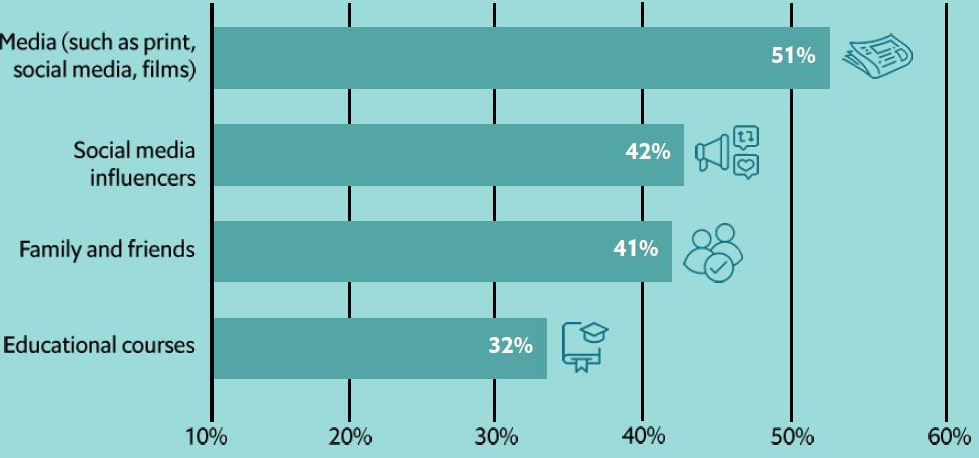
This could suggest that educational curricula falls short: Research indicates that many students have a limited understanding of marine issues, largely due to the absence of marine science topics in national curricula.
With rapid digitisation and the rise of affordable smartphones, media platforms are becoming key sources of ocean information, especially for young people in emerging regions like Asia-Pacific and Africa.
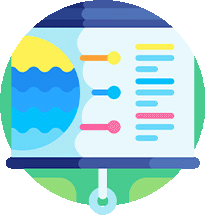
“If teachers don't know about the ocean, that's not going to help. They also need to be ocean literate ... The teacher is the conduit that you can use to actually have ocean literacy in schools.”
- Geraldine Fauville, associate professor, Department of Education, Communication and Learning, University of Gothenburg
THE FOURTH DISCONNECT: HUMANS AND THE OCEAN
There is a deep disconnect in understanding the integral role of the ocean in global systems.
50% of young people do not understand how the ocean impacts them and how they, in turn, impact the ocean.
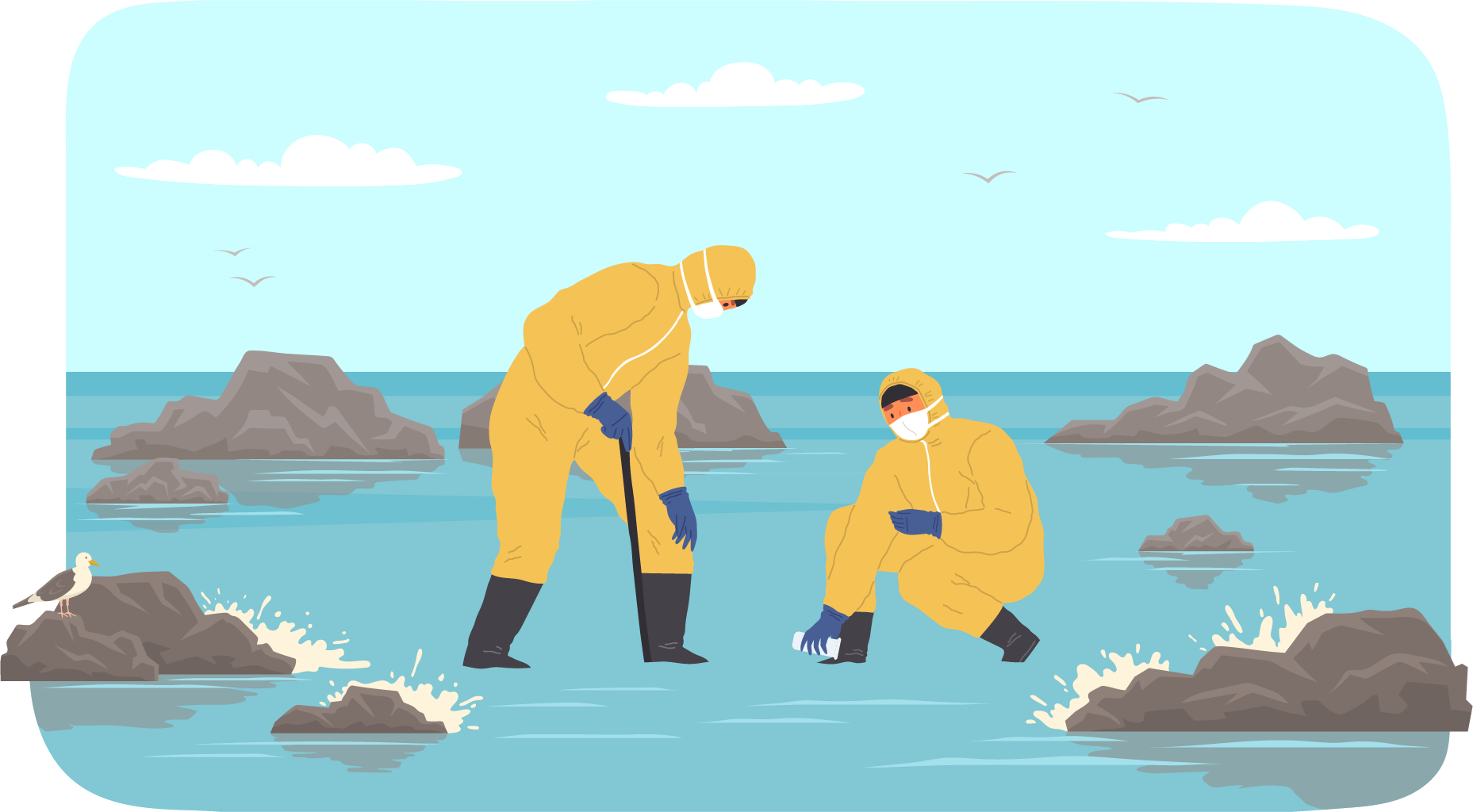
While nearly half (46%) believe that the government should bear the most responsibility for ensuring ocean health, followed by environmental organisations (36%) and individuals (28%), there is a clear lack of responsibility attributed to corporate businesses (17%) and small companies (9%). The responsibilities attributed to social media influencers and celebrities are seen as equal (18%).
Who do you think should be the MOST
responsible for ensuring ocean health where you live?
(% of
respondents)

Ultimately, collaboration is considered essential—81% of the young respondents in our survey think that ocean health requires collective action.
"Ocean literacy is key to the provision of human security on planet Earth. It unlocks the door to our living in harmony with nature. Intergenerational responsibility demands that without further delay, we apply ocean literacy on a global scale."
- Peter Thomson, United Nations Secretary - General's Special Envoy for the Ocean
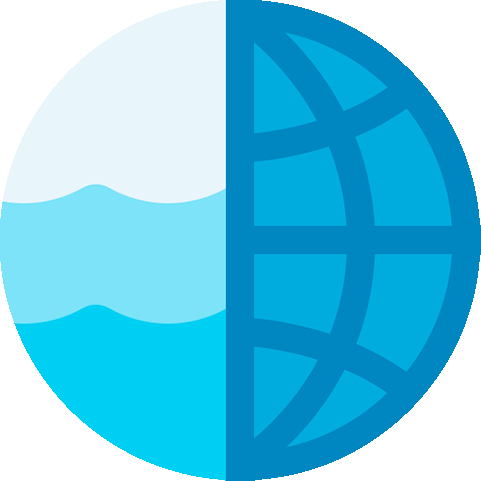
We thank the following experts for their valuable time and insights:
- Nicola Bridge, head of ocean advocacy and engagement, The Ocean Conservation Trust
- Géraldine Fauville, associate professor in education, communication and learning, University of Gothenburg
- Valentina Lovat, marine scientist, associate programme specialist, UNESCO-IOC
- Brigitta Maria Andrea Gunawan, founder, 30x30 Indonesia
- Emma McKinley, senior research fellow, Cardiff University and the Marine Social Science Network
- Yolanda Sanchez, expert in ocean literacy, community engagement and leadership; co-founder, Latin American Marine Educators Network (RELATO)
- Francesca Santoro, senior programme officer, Intergovernmental Oceanographic Commission (IOC)
- Peter Thomson, United Nations Secretary - General's Special Envoy for the Ocean
We would also like to express our gratitude to our team members for their efforts and dedication: Naka Kondo, Charles Goddard, Katrina Howell, Ritu Bhandari, Divya Sharma, Cheryl Fuerte, Bianca Galila, Miguel Fernandez and Paul Tucker
1 “UN Ocean Conference: SDG 14 Still Most Underfunded." Impact Investor, June 2022. https://impact-investor.com/un-ocean-conference-sdg-14-still-most-underfunded/
Back to Blue is an initiative of Economist Impact and The Nippon Foundation
Back to Blue explores evidence-based approaches and solutions to the pressing issues faced by the ocean, to restoring ocean health and promoting sustainability. Sign up to our monthly Back to Blue newsletter to keep updated with the latest news, research and events from Back to Blue and Economist Impact.
The Economist Group is a global organisation and operates a strict privacy policy around the world.
Please see our privacy policy here.
THANK YOU
Thank you for your interest in Back to Blue, please feel free to explore our content.
CONTACT THE BACK TO BLUE TEAM
If you would like to co-design the Back to Blue roadmap or have feedback on content, events, editorial or media-related feedback, please fill out the form below. Thank you.
The Economist Group is a global organisation and operates a strict privacy policy around the world.
Please see our privacy policy here.




 World Ocean Summit & Expo
2025
World Ocean Summit & Expo
2025 UNOC
UNOC Sewage and wastewater pollution 101
Sewage and wastewater pollution 101 Slowing
the chemical tide: safeguarding human and ocean health amid
chemical pollution
Slowing
the chemical tide: safeguarding human and ocean health amid
chemical pollution Hazardous chemicals in plastics - the discussions at INC
Hazardous chemicals in plastics - the discussions at INC


